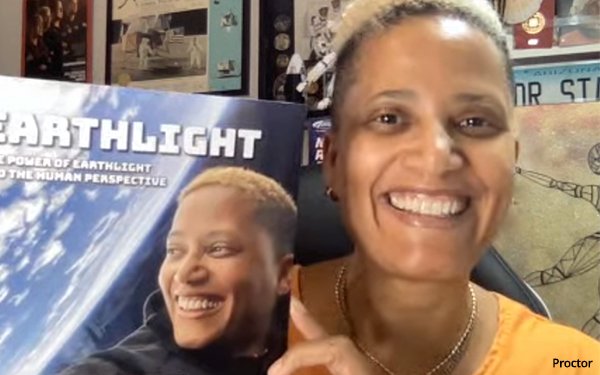Take Me To The Moon: Tripadvisor, Astronaut Debut Space Channel
- by Laurie Sullivan , July 16, 2024

Tripadvisor's Wanderlab, an in-house creative and content studio focused on marketing campaigns and innovations for brands, on Tuesday will launch Destination: Space, a content channel devoted to space tourism and exploration.
“We sit on hundreds of millions of monthly unique visitors and each one gives us a datapoint that we mine to drive creative strategies,” says Wanderlab head Adam Ochman, adding that the data drives the division’s strategies. “Space is the next frontier — travel and tourism — and is something of interest for many.”
At launch, Destination: Space gives brands the ability to associate with space innovation, exploration and the future of space travel.
Ochman says this next destination required a lot of research to educate visitors, so it features Tripadvisor’s first-ever review of space, with commentary by Astronaut Sian “Leo” Proctor.
advertisement
advertisement
Proctor got involved with Tripadvisor through American Institute of Aeronautics and Astronautics (AIAA) to inspire and increase the understanding about the benefits of space for life on Earth. The destination was created in collaboration with the AIAA, a large aerospace technical society, highlights itineraries for space enthusiasts, such as nine kid-friendly destinations for future astronauts.
“As a kid, NASA was the only thing when you thought about going to space and becoming an astronaut,” Proctor says. “In this past decade we’ve seen so much change on the private commercial side, which opened so much access. One in the form of more jobs. By the end of this decade, space will turn into a trillion-dollar industry through companies like Blue Origin and Space X. It fits well with the Space4All message.”
Proctor is a geoscience professor by day. On the site she shares her adventure of going into space as an astronaut with an inspiration to build the first all-civilian launch into orbit. She was a mission pilot, and the first woman and only African-American commercial spaceship pilot.
“My mission's goal is to be the first, but not the last,” she says.
Why go to space? “When we solve for space, we solve for earth,” Proctor says. “Going to the moon, Mars and beyond requires us to be at our most efficient levels when it comes to waste management, food, water, shelter, and resource management. When we strive for those efficiencies, all the knowledge and technologies get spun off and used here on earth. For us to become more sustainable on earth, we must go out there and explore.”
Proctor also talks about mining minerals on other planets to take advantage of resources.
“We have a finite amount of minerals on earth, especially when it comes to trace minerals for semiconductors and electronics,” she says. “Out in places like the asteroid belt, there are lots of these heavy and trace metals that are limited on earth.
One push is to try to figure out how to move this type of processing off earth, because it’s one thing damaging our environment.”
She adds that it then would be easy to see how the resources will be taken from other planets.


